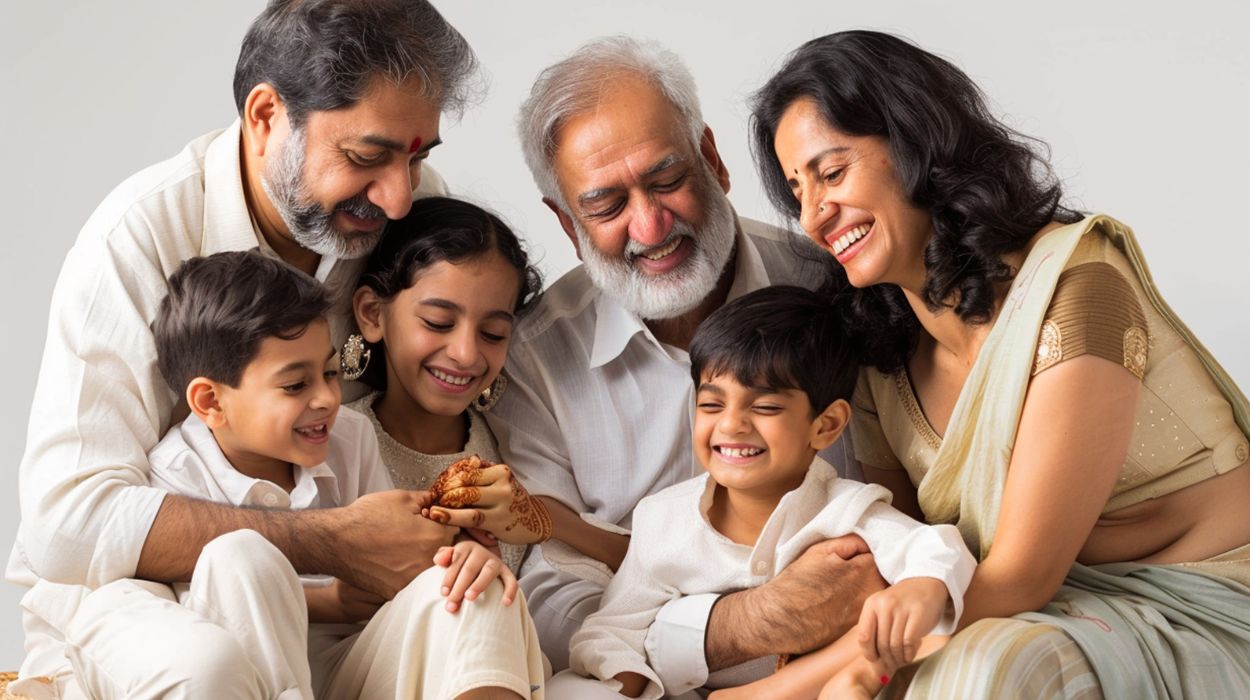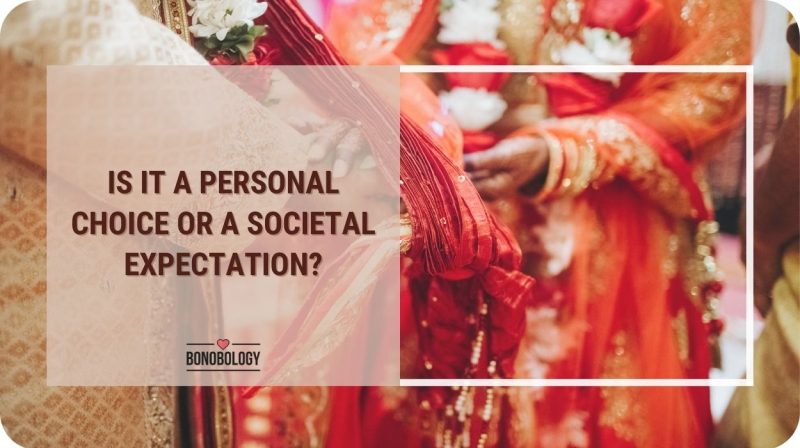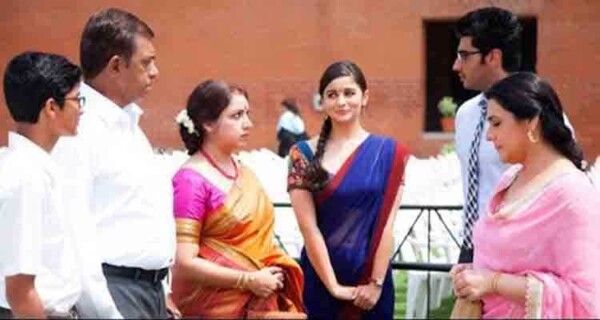Indian society has different expectations from men and women and most often there is a vivid discrimination. Leaving one’s own house and moving in with the husband’s family is one such practice. But is it all bad or there is a rosy side as well? We asked our readers from the group Indian Women Discuss and this is what they had to say.
Why Should It Be A Compulsion On Women To Live With The In-Laws?
Table of Contents

Deepmala Dutta Unfair. First of all, living with parents after attaining adulthood is a sham. It’s so blown out of proportion in India. Then after marriage, the in-law factor doesn’t help the couple to grow interdependent, because there will always be someone else to help or create trouble. Adults in India foresee parents as caretakers of their kids and other necessities… It’s a kind of give and take policy. No one is selfless.
“The decision of where to live after marriage should be a joint one, made by the couple in consultation with their families.”
Mariya Salim Of course it is unfair. What makes the parents of a boy more important than those of a girl? These traditions are deep rooted in patriarchy. Both sets of parents should move in together if the expectation is that the boy and girl need to take care of the parents. My parents should be as important as his.
Related Reading: How To Talk To Your Husband When The Other Woman Is His Mother
Akanksha Dutt Every couple deserves to make a home of their own, independent of both sets of parents. They should be applauded for making their own nest right from scratch, instead of being made feel guilty of the ‘crime’ of living ‘separate’ from parents. Every human being needs his or her own space. A couple is no different. The wife deserves a chance to make a home with her husband rather than making ‘adjustments and compromises’ to make a space for herself in the in-laws’ hearts and home!
Related reading: 12 things you should never compromise on in a relationship
Preeti Gaur Depends on the sweetness of the relationship and circumstances. If the bond is strong and there is a sense of tolerance and respect for each other in the entire family, then living together is bliss. Children enjoy the love of grandparents. But there are situations when one has to be away despite everything going right, like for people with transferable jobs.
Swati Singhania Not unfair! Well, living with parents is always a little difficult. But we don’t quit on ours, so why should we quit on his?
“With increasing urbanization and economic independence, more Indian women are choosing to live separately from their in-laws.”
Tanvi Sinha Of course it is unfair. How do the girls’ parents manage? Are they any less old? This is one of the reasons people want sons – budhape ka sahara. Let us not complain about female foeticide when we continue to enjoy all benefits of patriarchy.
Adjusting to a new home is a two-way street, but in the ideal scenario, there should be no compulsion on women to live with the in-laws. Don’t you think so?
Related Reading: My Toxic In-Laws Won’t Let Go Even After We Have Shifted Cities

How Can Couples Navigate This Issue With Their Families?
- Understanding the Tradition: The practice of living with in-laws after marriage has deep roots in Indian culture, often linked to family values, joint family systems, and the role of women as homemakers.
- Personal choice: The decision of where to live after marriage should be based on individual preferences and circumstances.
- Cultural context: Understanding the cultural significance of this tradition is important.
- Open communication: Effective communication is essential for resolving conflicts and building positive relationships.
- Respect and understanding: Respecting each other’s boundaries and desires is crucial for a harmonious living arrangement.
- Balance: Finding a balance between family obligations and personal needs is important.
FAQs
1. Why is it a tradition for Indian women to live with their in-laws after marriage?
This tradition is rooted in Indian culture, often linked to family values, joint family systems, and the role of women as homemakers.
2. What are the potential benefits and challenges of living with in-laws?
Benefits include support, guidance, and financial advantages. Challenges can include conflicts, loss of privacy, and potential strain on relationships.
3. How are modern Indian women responding to this tradition?
With increasing urbanization and economic independence, more Indian women are choosing to live separately from their in-laws.
4. Is it fair to expect a woman to live with her in-laws against her will?
No, it is not fair. The decision of where to live should be based on mutual agreement and respect.
Final Thoughts
The expectation for an Indian girl to live with her in-laws after marriage is a complex issue with deep cultural roots. While it has been a common practice for centuries, changing societal norms and individual preferences are challenging this tradition.
It’s important to recognize that the decision of where to live after marriage should be a joint one, made by the couple in consultation with their families. Open communication and mutual respect are crucial for fostering harmonious relationships, regardless of living arrangements.
Your contribution does not constitute a charitable donation. It will allow Bonobology to continue bringing you new and up-to-date information in our pursuit of helping anyone in the world to learn how to do anything.























Featured
Setting Boundaries With In-laws – 8 No-Fail Tips
The 7 Ways Mothers-In-Law Ruin Marriages – With Tips On How To Save Yours
10 Actionable Tips For Distancing Yourself From In-Laws
12 Things To Do When Your Husband Chooses His Family Over You
10 Signs You Have A Toxic Daughter-In-Law And How To Deal With Her
15 Signs Your Mother-In-Law Hates You
How To Talk To Your Husband When The Other Woman Is His Mother
How To Impress Your In-laws In The First Meeting
10 Thoughts That Come To Your Mind When Your Mother-In-Law Visits You
10 Ways To Deal With Disrespectful In-laws
15 Clever Ways To Deal With A Manipulative, Scheming Mother-In-Law
How I Won Over My Boyfriend’s Mom
Please Don’t Call Her Selfish If She Doesn’t Want To Live With Her In-Laws
My Wife Was Abducted By Her Family Because I Was 15 Days Younger Than Her
How Destructive Are Indian In-Laws?
7 Tips For Men Who Are Stuck Between Wife And Mother In A Joint Family
My Marriage Was In Trouble Because Of My Sister-In-Law’s Stories
8 Signs of a Poisonous Mother-In-Law and 6 Ways to Beat Her at Her Game
How We Solved Interfaith Marriage Problems
Relationship with In-Laws: I was Scared of My Father-In-Law because…